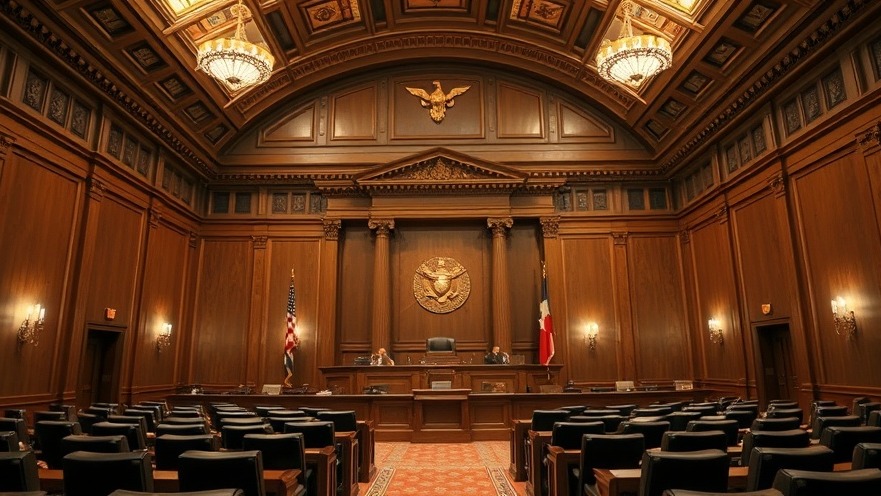
Texas Supreme Court Takes Its Time on Expulsion Requests
The ongoing political saga in Texas continues as the state’s Supreme Court has granted itself a three-week period to deliberate on the unprecedented requests from Governor Greg Abbott and Attorney General Ken Paxton to expel Democratic lawmakers who fled the state. As many of you might know, this bold move came after House Democrats left Austin on August 3 to prevent the passing of a new congressional map that they viewed as a partisan maneuver. The outcome of this case could redefine the boundaries of legislative accountability and protest.
The Context Behind the Expulsion Requests
In a bid to maintain a Republican advantage in upcoming elections, Governor Abbott and Attorney General Paxton allege that the Democratic lawmakers abandoned their responsibilities by leaving Texas. This is not merely a procedural issue; it's deeply intertwined with electoral strategy as the redistricting process is critical for the 2024 congressional elections. With pressures from the Trump administration for a more Republican-friendly map, the stakes couldn’t be higher.
What Makes This Situation Unique?
What’s particularly noteworthy is the absence of precedent for this type of court intervention. Historically, no Texas lawmaker has been expelled simply for breaking quorum, and this raises significant questions about the checks and balances within our state. The journey toward determining consequences for legislators who leave to oppose certain laws opens up a critical dialogue about legislative rights and responsibilities.
Potential Implications of the Rulings
An expulsion could reshape not only the political landscape in Texas but also set a nationwide precedent. If the court rules in favor of Abbott and Paxton, it could embolden state leaders across the country to pursue similar actions against dissenting lawmakers. Conversely, a ruling in favor of the Democrats might reinforce the validity of legislative protest tactics, enabling minority parties to take a stand against perceived injustices without fear of retaliation. This case may well serve as a litmus test for the health of American democracy at the state level.
Political Reactions and Public Sentiment
Public perception is divided. Many Republicans view the Democrats' move as a dereliction of duty, while the Democratic base sees it as a principled stand for their constituents against an unjust process. The state’s judiciary, which is predominantly Republican, will have to navigate these turbulent waters carefully, balancing political influences and ethical governance. This dynamic could lead to tensions not just within the legislature but also within Texas communities, as citizens keenly observe how their representatives choose to engage in political battles.
Broader Trends in Texas Politics
This scenario is part of a larger trend in Texas politics, where partisanship seems to increasingly define legislative actions. With the 2025 elections on the horizon, local political races are garnering public attention. Voter turnout and public engagement will be critical in determining future governance in Texas.
Conclusion: What Lies Ahead for Texas
The next few weeks will be pivotal as Texans await the court's ruling. One thing is for sure: this issue has far-reaching implications that may extend well beyond Texas borders. In a climate marked by stark political divisions, the state will continue to serve as a critical case study in governance and accountability.
Stay tuned to Texas news updates as this story develops, because the outcomes here are not just about politics; they reflect the core of civic engagement in our democracy.
 Add Element
Add Element  Add Row
Add Row 



Write A Comment